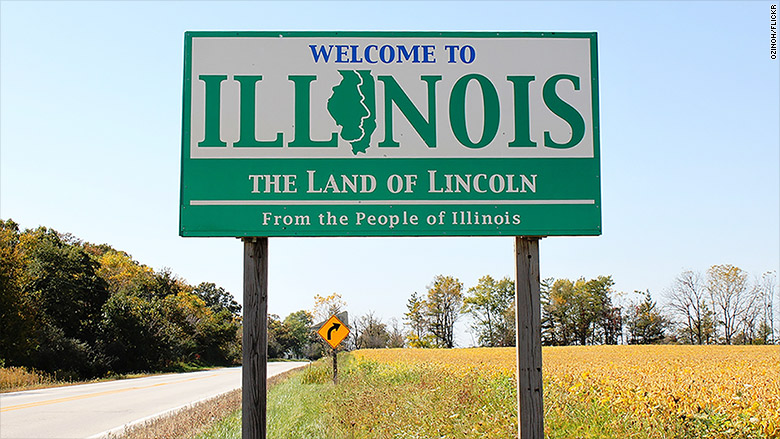A few days ago, I reconnected with an old friend. A serial entrepreneur I’ve worked with on and off over the years.

As Washington, D.C., and other cities consider following Seattle, San Francisco and Los Angeles in phasing in a $15-an-hour minimum wage, Ivar's approach, adopted in April, offers lessons in how.
- 'Raising the minimum wage to $15 an hour will be an absolute disaster for small businesses like my own, Gruel & Unusual Foods, Inc., which relies on an impoverished underclass to consume my bland.
- Free Business Startup Checklist. Starting a business can be overwhelming! Use this free Business Startup Checklist to make sure you don't miss any important steps. This downloadable Word document lists the steps you need to take to get your business up and running, and includes space for you to note your own comments and deadlines.
- A grand experiment is underway in some of America’s largest cities, where the minimum wage has been increased, with the goal of gradually reaching $15 an hour.

We’ve been friends for decades now. And so perhaps not surprisingly, after not seeing each other for a while, we reminisced about the ventures we’ve worked together on—some of which have worked well. And some of which haven’t worked so well.
As we were talking over all this shared history, it dawned on me that my friend’s experiences neatly illustrate subtle but also actionable, powerful insights concerning small business start-ups.
Accordingly, with his permission, I share in slightly camouflaged terms his start-up successes and failures—and then some possible insights you may want to consider.
The Small Business Owner’s Biography
Before I get into the insights, though, I need to bring you up to speed on this rather typical small business owner’s history.
A first thing to know is that this small business owner has over slightly more than three decades operated half a dozen ventures:
- A niche consulting practice,
- A business services firm,
- A specialty manufacturer,
- A consumer products business,
- An ecommerce venture, and
- A financial services firm
None of these ventures stood out in any big newsworthy way. And his results were often varied.

Though all produced at least a slightly positive return on investment (sometimes just barely), his owner’s draw or salary bounced all over the place.
One venture simply paid him a living wage for a time. (Say $15 an hour in current day dollars.) And that’s not exactly what an entrepreneur aspires to given the risks and all.
Three of the remaining ventures paid him at least the household median income for at least a few years. (Roughly $50,000 a year in current day dollars.)
Two of his ventures paid him more than $150,000 a year (in current day dollars) for at least a decade. (That’s basically a 95th percentile income for a decade.)
And then his best venture actually paid him a 99th percentile income (roughly $400,000 a year in current day dollars) for a decade.
So one can get lost in the accounting details. But the details lead, I suggest, to a three subtle insights.
Insight #1: Your Definition of Success Really Matters Most
A first insight? Your or my definition of success largely determines whether we are successful.

How $15anhour Wages Helped My Business Succeed As A
For example, if your definition of success is a living wage, each of the six ventures succeeded. That’s a 100% success rate.
If you say success means earning more than just a living wage, that success means earning at least the median household income for at least several years five out of six of his ventures worked. That’s an 83.33% success rate.
Suppose you ratchet up the success criteria even more and require and want to make at least a 95th percentile or better income and for at least a decade. With these criteria, you can only grade three of six ventures as succeeding. That means a 50% success rate—and a 50% failure rate.
Finally, if you define success as a business income that puts the owner into the 99th percentile and for a decade, only one of the ventures counts as a success. (And you’re looking at about a 17% success rate and then roughly an 83% failure rate.)
The upshot? Small business entrepreneurs need to be careful about the success definition they use.
No, of course, you and I don’t want to be too loose-y goose-y about our definitions of success.
But we also don’t want to set the bar too high.

If we do set the bar too high, we very possibly miss lots of pretty attractive opportunities.
And by the way, remember that regularly, great ventures grow out of so-so small businesses that find themselves positioned exactly perfect to pursue some great new opportunity.
How $15anhour Wages Helped My Business Succeed At A
Insight #2: A Single Venture’s Outcome May Be Irrelevant
Another truly powerful insight resides in the anecdotal data shared here: Thinking about business success or failure rates and then looking at a single venture lacks relevancy if you’re willing to explore subsequent opportunities.
For example, earlier I noted that using the “at least a 95th percentile income for at least a decade” definition meant that my friend’s failure rate was 50%. Wow. That 50% seems pretty ugly right?
And that 50% conveniently meshes with the popular conventional wisdom that your odds of success are scary. What kind of fool starts a new business? Yikes.
But look again at the entrepreneur’s actual experience: Over a slightly longer than three decade time frame, he built and profited from three pretty profitable businesses. Each lasted at least a decade. Two produced at least 95th percentile income for a decade. One produced a 99th percentile income for a decade.
You can’t combine those business’s incomes and returns and come up with a bad outcome for his roughly three decades of small business venturing.
And so the takeaway here is that failure in a single venture doesn’t mean failure as an entrepreneur.
If someone ends one venture but then moves onto a new, good, fun, high-potential opportunity, everybody (owners, employees, customers and vendors) may win big time in the end.
Insight #3: The Landing May Matter More than the Takeoff
And now a final insight related to the actual “ending” of a business venture.
Have you ever heard the aviation joke that goes “A good landing is one which you can walk away from?”
That perspective, I think, works as a good insight about this business start-up success and failure stuff.
No matter how your venture takes off, and basically no matter how smooth or even great the “flight” is for you or me as a business owner, the landing really matters.
A safe landing where a venture ends but in a way that nobody involved gets too beat up or too badly injured means that you the business owner can do something else.
Maybe that something else is start a new business. Maybe that something else is to take a job working at some other firm. Maybe that something else is retiring.
